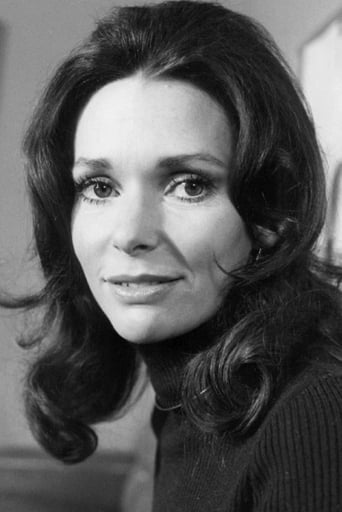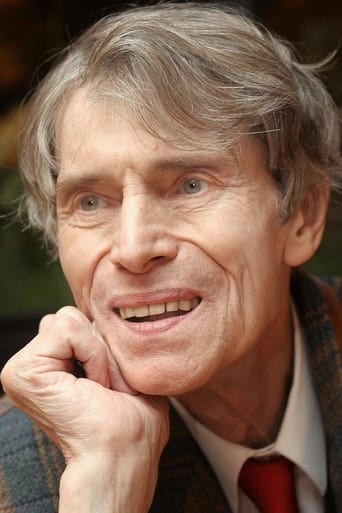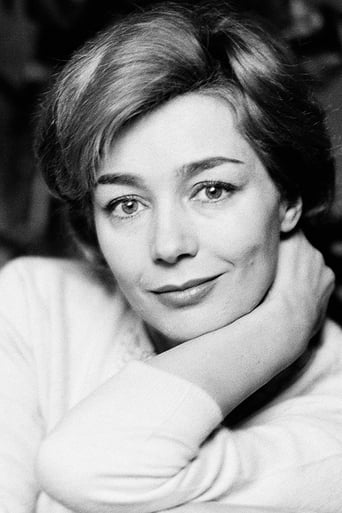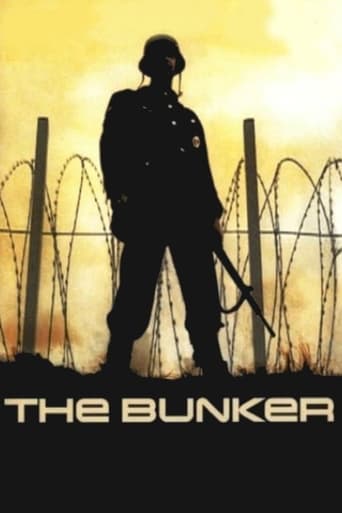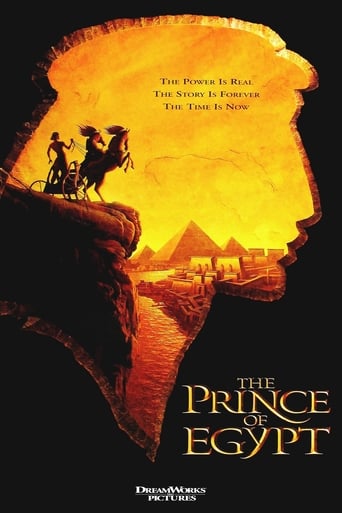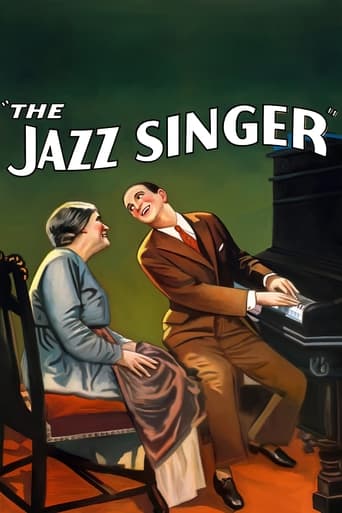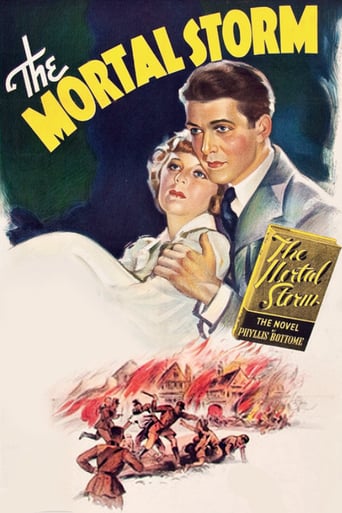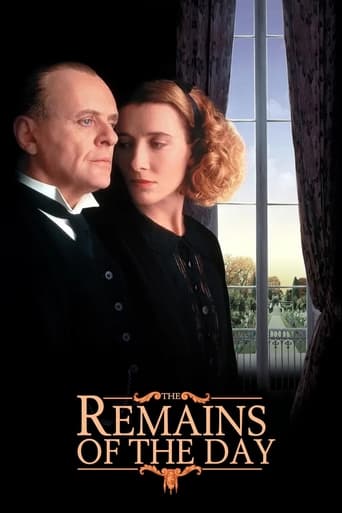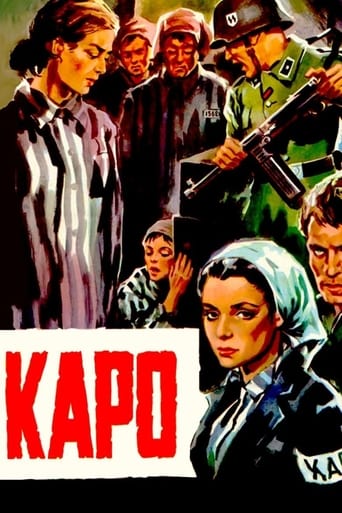
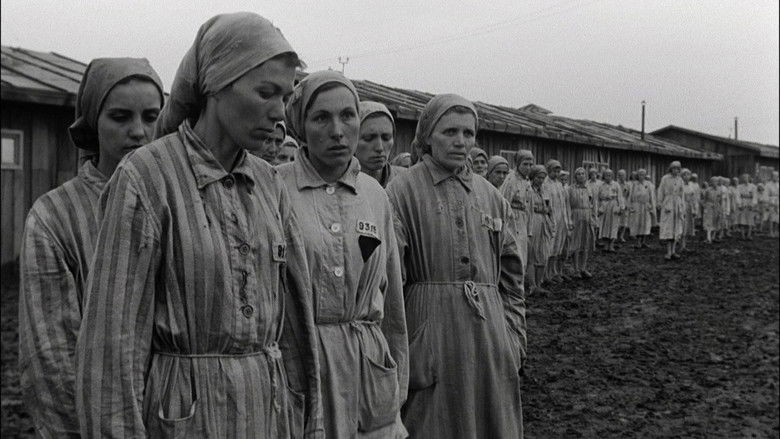
Kapo (1960)
Determined to survive at any price, Edith, a young Jewish woman deported to an extermination camp, manages to survive by accepting the role of kapo, a privileged prisoner whose mission is to ruthlessly guard other prisoners.
Watch Trailer
Cast
Similar titles

Reviews
Good movie but grossly overrated
Although it has its amusing moments, in eneral the plot does not convince.
It's easily one of the freshest, sharpest and most enjoyable films of this year.
It’s fine. It's literally the definition of a fine movie. You’ve seen it before, you know every beat and outcome before the characters even do. Only question is how much escapism you’re looking for.
This film relates the story of a 14-year-old Jewish girl during her captivity in a Nazi concentration camp. Her role is portrayed by 21 year old Susan Strasberg who had portrayed Anne Frank on stage and Kim Novak's little sister, Millie Owens, in Picnic (1955). Kapò was nominated for an Academy Award for Best Foreign Language Film in 1960, when the Oscar went to Ingmar Bergman's The Virgin Spring. In 1966, another Gillo Pontecorvo film---The Battle of Algiers--would be nominated in that same category. That year the Oscar went to A Man and a Woman. (I think that the Academy 'missed the boat THAT year!! The idea that The Battle of Algiers could be missed for its greatness is hard to imagine!)As Kapò begins, Edith (Susan Strasberg), has just finished her harpsichord lesson and is going home when she sees her parents being arrested by the Nazis. When she runs to them, she too, is arrested. The family is transported in a boxcar to a concentration camp in Poland. Once there, the she is separated from her parents and taken to a separate cell block. Anxious to find them, she enters their cell block where we see the film's first terrible images of the over crowed and starving prisoners. While she is unable to find her parents, another female prisoner, Sofia (Didi Perego), sees her there and takes her to a camp doctor for help. Since Edith is new to the camp--and another girl her age had just died the night before--the doctor instructs her how to change her identity and be saved from certain death. As he explains, the prisoners are treated differently based on which patch they have on their smocks: a yellow Star of David indicates that they are Jews; a red patch (such as the doctor's) identifies them as political prisoners; and a black triangle indicates that they are criminals. The doctor tells Edith that she must cut her hair, change her clothes with those of the dead girl and take on a new identity, as Nicole Niepas, a non-Jewish criminal (with a black triangle on her smock). Camp police (kapòs) are chosen from among the criminal group. They are hated by their fellow prisoners but useful to the SS officers who use them as their eyes and ears within the cell blocks. By being harsh on the other prisoners and reporting any resistance or planned insubordination to their Germans captures, the kapos are given special privileges such as food, clothing, and use of sanitary facilities. But, most importantly, if they do their jobs well, they are not likely to be exterminated with the other prisoners. Later, Edith sees her parents being marched off to be killed in the gas chamber. With all hope lost, Edith (as Nicole Niepas) becomes a kapo. Her transformation from victim to 'victimizer' increases as she reports the activities of other prisoners and fraternizes with a German soldier in the camp. (She loses her virginity to one of the soldiers in the camp.) Her personal harshness is diminished when Russian POWs are taken to the same concentration camp and she falls in love with the Russian soldier, Sascha (Laurent Terzieff). As the Allies approach the camp near the end of the war in Europe, she agrees to take part in a daring escape plan. But, the as the plan takes shape, we realize that it is not totally without sacrifice..
This film poses impossible questions.If you had the opportunity to forfeit your own life to save the lives of others, would you? If you chose not to, could you live with yourself?Susan Strasberg as Edith/Nicole is nothing short of amazing as a Parisian child of privilege who is forced to evolve from a tearful innocent into a world-weary ball-breaker, and, finally, resigned martyr. Every bit of her performance is believable.The ensemble of actors who surround her resound with verisimilitude -- Emmanuelle Riva as the ultimate concentration-camp realist; Didi Perego as an idealist who struggles to maintain her dignity and refuses to live without it; Gianni Garko as a Nazi soldier willing to be a friend, and Laurent Terzieff as Sascha, who, as Nicole's recruiter into an escape plot, is exceedingly difficult to read in moral terms.I didn't expect to find a film of this grandeur when I stumbled upon it on TCM. (Maybe the fact that often-scruffy introducer Ben Mankiewicz was wearing a suit should have been a tip-off!) It leaves one with much to ponder.In particular it leaves me marveling that just a few decades after the Holocaust this extreme low point in human history seems to be mentioned so rarely.Perhaps this film should be required viewing for anyone who doesn't want history to repeat itself.
i'm trying to order a video of this incredible movie, & in so doing have seen the comments about it. i haven't seen this movie in about a year, but i must reply in response to the previous viewer's comments. "kapo" is the zenith of film noir, or should i say, the best of the "film nadir." it may be the darkest movie i've seen. the black & white filming certainly intensifies its starkness. when i first innocently viewed "kapo," i remember being initially surprised, then moved, then deeply disturbed. couldn't susan's choices have been any of ours born at the same wrong time, wrong place? only i may not have chosen the heroic finale that susan chose. her choices introduce that question in ourselves--would we have chosen to save others as she did? or would we have preferred to save ourselves? an eternal dilemma that cannot be answered unless we are actually put into her position--God forbid. released in 1959, 14 years after WWII was over, makes me wonder what movies will be made 14 years from now, or should i say, 14 years from when the war in iraq is over... SEE this movie.
Nominated for an Academy Award for Best Foreign Film in 1960, Gillo Pontecorvo's second film Kapo features Susan Strasberg as a Holocaust victim who decides that she will do anything to survive, even join the enemy. Kapo, which stands for Kameradenpolizei, refers to death camp collaborators who are recruited from the "criminal element" to supervise other prisoners in return for better treatment and more privileges. Pontecorvo, who fought in the Italian Resistance as a member of the Communist Party, presents a realistic picture of what life in a concentration camp must have been like but no movie can fully capture the madness and inevitably any attempt to dramatize it must take on aspects of melodrama.Strasberg, who had played the title role in The Diary of Anne Frank on Broadway several years earlier, portrays Edith, a 14-year old Jewish girl who is sent to a concentration camp with her parents when Jews are rounded up in Paris. After watching her parents die in the gas chambers along with other women and children, Sofia, a friend, introduces Edith to the camp doctor who provides her with a new identity as the non-Jewish Nicole. Cutting her hair and dressing her in the work clothes of a prisoner that died that morning, she is sent to a labor camp where she witnesses repeated horrors including the hanging of a young girl for alleged sabotage.Desperate to stay alive, she offers herself to a German soldier Karl (Gianni Garko). Although little about this relationship is developed, it leads to Nicole accepting the job of a Kapo, and the victim becoming a victimizer, brutally enforcing the camp's harsh rules on her fellow prisoners. It is only when she witnesses the suicide of a close friend Terese (Emanuelle Riva) and falls in love with Sascha (Laurent Terzieff), a Russian prisoner of war, that she is able to redeem the human values that had once been an integral part of her life. Much of this happens over a period of time but the passage of time is not shown and Nicole's transformation from a loving young girl to a bullying camp guard seems too quick and facile to be truly convincing, and there is little self-reflection in the process. The experience gained in this film, however, paved the way for Pontecorvo's masterpiece The Battle of Algiers, only a few years after.
